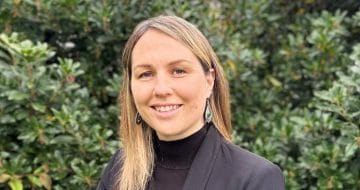Clare Stapleton, Employability Group Manager at ULaw Birmingham talks networking tips, common application pitfalls and demonstrating commercial awareness, ahead of her appearance at this Thursday’s in-person event in Birmingham

With vacation scheme applications in full swing this autumn, doubts abound about where to apply, whether Qualifying Work Experience (QWE) under the SQE regime is a better alternative to the training contract route and how to demonstrate commercial awareness.
Legal Cheek Careers sat down with Employability Group and Birmingham Careers Manager at The University of Law to hear her advice on some key questions this application season.
Can you tell us a little bit about your background, and what you enjoy about working in employability?
Fresh from uni I worked as part of the graduate recruitment team for a large corporate commercial law firm and worked particularly with our offices in the North-West. I also oversaw all our university activities and travelled up and down the country attending law fairs. I then switched teams and started working at unis advising law students on how to get in front of and impress in the legal market. As much as I enjoyed my time in recruitment what I really enjoy about working in Employability is getting to help such a wide range of clients from different backgrounds get their first experiences in law.
What stands out to you about the Birmingham legal market, both in terms of working culture and the opportunities available for students?
I think what really stands out in Birmingham is how varied the work can be and what a variety of types of firms and chambers there are. The advantage of having a large city centre (and so access to high value and international commercial work) as well as a lot of smaller ‘town centre’ style suburbs (and so strong local, regional and full-service offerings) means that you really can experience it all as a student. Culturally, the legal community in Birmingham feels very close knit and you will often see the same people at events of all different sizes so it is very inclusive for trainees and NQS.
Qualifying Work Experience (QWE) under the new SQE regime has made the route to qualification a lot more flexible. How can students get the most out of QWE?
I think QWE really opens up a lot of pathways for those who know what areas of law they want to do and that flexibility means you can go out and create something properly bespoke to your aims. To get the most of QWE I would really sit and examine what draws you to law and what kinds of experiences you want to have pre-qualification and draw up a shortlist of all the types of employers and types of roles you might ideally want to get there that way you can have plans a, b & c and always have an option that can take you to your goal and avoid some of the deadline dread of the traditional recruitment season.
What support does ULaw Birmingham offer its students who want to qualify using the QWE route, rather than the more traditional training contract route?
One of ULaw’s strengths has always been in how we work with students one on one and I think this lends itself very nicely to the QWE route. In an appointment for QWE, we would start by sitting down and mapping out the kinds of firms you might want to work at once you are qualified and work back from there towards what stepping stones might be best placed to create a skills CV and QWE portfolio that will make you attractive to those employers. We also continue to run networking events and mentoring schemes to put students in touch with the local legal market.
Ahead of Legal Cheek’s upcoming in-person event in Birmingham with ULaw, what tips do you have for students on how to approach such networking events?
A big tip is to remember that everyone in that room signed up because they want to talk to you — a bad night for them is not speaking to enough students and getting a feel for what the next generation wants in law so they are going to be a very forgiving audience!
That said it helps to go in feeling confident and confidence often comes from preparation so it isn’t a bad idea to have 2 or 3 bullets of generic questions that you feel you could ask of anyone e.g.: Knowing what you know now what would you do if you were still in uni? A lot of networking events also start with a talk and this can be a great way to pick up some more specific questions – perhaps a speaker mentions a voluntary group they were involved in and then you could ask them how they got in touch.
There are so many resources available for students to build their commercial awareness, from news briefings to podcasts. Having said that, however, how can students best demonstrate their commercial awareness in their applications?
I think the best way to demonstrate commercial awareness is to think about the impact of the piece of information they are evidencing on how the firm operates and its ability to make money. Often, I read applications where candidates are explaining the impact something like an interest rate change might have on banks or the general public but they don’t trace it all the way back to link it to the work of the firm. If it’s a family firm perhaps there are stats on how recession worsens family breakdowns and increases divorce rates so a firm with a specialism in this area might be impacted by a short-term influx of work. To demonstrate commercial awareness, you really want to ensure that you are making your arguments with the specific audience you are addressing in mind and not providing info and leaving them to infer the impact.
In your experience, what is one mistake students frequently make on their applications that they should make sure to avoid?
It sounds silly but I would say the mistake I most often see on application forms is candidates not actually answering the question. You read quite a lot of drafts where candidates end up providing a series of facts or statements about themselves which are on the right topic for the question but where they haven’t actually included an explanation on how that information answers the question asked. This is particularly noticeable in questions that ask you why you are interested in a news story or why you want to train with a firm – you get a lot of details and statistics but not a lot that answers why that information is important to the writer. You can also lose crucial commercial awareness marks this way.
Clare Stapleton will be speaking at ‘In-person workshops and networking in Birmingham — with Eversheds Sutherland, Mills & Reeve, Trowers & Hamlins and ULaw’ on Thursday 12 October. Apply to attend.
About Legal Cheek Careers posts.


